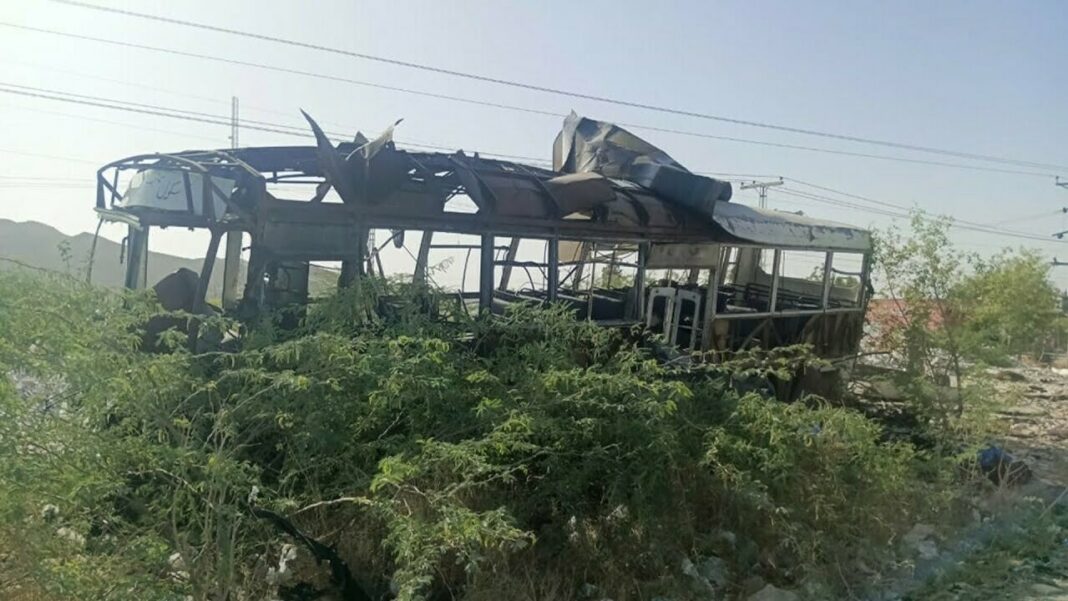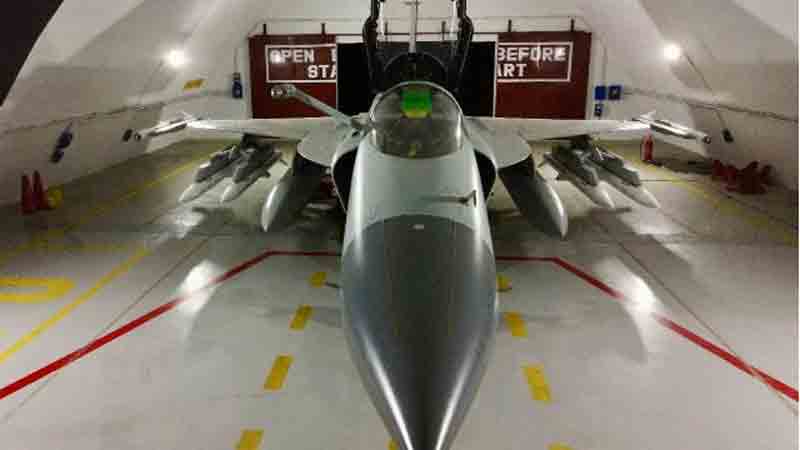There is substantial evidence indicating that India provides support to terrorist groups in certain regions of Pakistan, particularly in Balochistan province, by supplying them with financial resources, arms, and training, according to sources familiar with the situation who spoke to the Defence Talks.
While India continues to suppress some of its rivals and neighbors under the pretext of combating terrorism, it has covertly financed terrorist organizations in Pakistan, particularly in areas like Balochistan, which is troubled by separatist movements. This support has encouraged local secessionists to destabilize the region through acts of terrorism, as revealed by these sources.
“This is the terrorist face of India, this is the actual cruel evil of Hindustan, please remember this, this is what India did on 21st May.”- DG ISPR showed the footages of innocent children killed and injured in #KhuzdarTerroristAttack
Six children martyred and dozens injured. pic.twitter.com/3rWAibipxE
— Dr Shama Junejo (@ShamaJunejo) May 23, 2025
The Defence Talks conducted an investigation into historical documents and relevant news articles from both Pakistani and Indian media, in addition to interviews with individuals knowledgeable about the Balochistan situation, and discovered that India has a longstanding record of supporting terrorism within Pakistan.
In December 2023, a commander of the Baloch National Army (BNA), separatist militant group, who had surrendered to the Pakistani government, revealed that India has been covertly supporting terrorist operations in Balochistan and funding separatist factions in the area.
As reported by Pakistani media, commander Sarfraz Ahmed Bungulzai made this statement during a press conference in Quetta, the capital of Balochistan. Bungulzai expressed that he initially believed his armed struggle was for the rights of the Baloch people, but he later came to understand that “India is involved in all these conspiracies.” He referenced a helicopter crash in 2022 that resulted in the deaths of six Pakistani army officials, including a general. During the press conference, he stated that the secessionist group Baloch Raj Aajoi Sangar (BRAS) claimed responsibility for the incident under India’s direction. “And after receiving funds from India, they shed the blood of their own Baloch,” Bungulzai remarked.
Several years prior, another incident suggested India’s involvement in terrorism within Pakistan. In March 2016, Pakistan’s Inter Services Public Relations released a confessional video from an Indian spy named Kulbhushan Yadav, who was reportedly apprehended while trying to infiltrate Pakistan from the border area earlier that month. In the video, Yadav claimed to be an active officer in the Indian Navy, conducting intelligence operations for Indian agencies under the alias Hussein Mubarik Patel. “I was recruited by RAW (the Research and Analysis Wing, India’s purported external intelligence agency) at the end of 2013,” Yadav stated. “My objective was to meet with Baloch insurgents and execute operations in collaboration with them. These activities were of a criminal nature, resulting in the deaths or injuries of Pakistani citizens.”
The Confession of Commander Kulbhushan Yadav of Indian Navy ⚓ 🇮🇳
– Serving Indian Officer
– No: 41558Z
– Due retirement 2022-RAW Asset
– Part-1 pic.twitter.com/OKlXqBOEw6— ENTEI (@ZEUS_PSF) November 10, 2023
Numerous instances have been pointed out by Pakistan’s security agencies on various international platforms, demonstrating how RAW finances elements within Pakistan to incite unrest.
Evidence of India’s ties to terrorist groups in Pakistan can also be found in several reports from Indian media. For example, The Hindu published an article in July 2019, which stated, “It is established that BLA (Baloch Liberation Army) commanders, in the past, had sought medical treatment in India’s hospitals, often under disguise or with fake identities.”
Pakistan officially designated the BLA as a terrorist organization in 2006. The Hindu article mentioned a BLA militant commander who “was based in Delhi for at least six months in 2017,” to receive “extensive treatment for kidney-related ailments.” It is noted that Baloch sardars “maintained warm personal ties with various Indian political figures,” according to the article.
Some of the pertinent evidence has been made public. Numerous other solid pieces of evidence indicate that India supports terrorism in Pakistan, although they have not yet been disclosed for various reasons, according to a source familiar with the situation in Balochistan.
Some scholars from Pakistan assert that India has a longstanding pattern of meddling in Pakistan’s internal matters. For instance, M. Ikram Rabbani, in his book Comprehensive Pakistan Studies, stated that this interference “can be traced back to the times of independence from the British rule.” In his work, Rabbani referenced Subrahmaniyam, a former director of the Indian Institute of Defence Studies, who remarked during a symposium in March 1971 that “what India must realize is that the breakup of Pakistan is in our interest and an opportunity that will never come again.”
Even more troubling, while backing separatist factions to carry out terrorist activities in areas such as Balochistan, India adeptly employs the tactic of a thief shouting “stop thief” in the international arena, while casting blame on Pakistan, as noted by observers from Pakistan and China.
Ye Hailin, deputy director of the National Institute of International Strategy at the Chinese Academy of Social Sciences, pointed out that India maintains a clear double standard regarding terrorism. “If you examine India’s media and think tank reports, you will notice that their accounts of the terrorist incidents in Balochistan differ significantly from those concerning the situation in Kashmir,” Ye informed the Global Times.
For many years, China has played a significant role in fostering economic growth that has positively impacted local communities through a variety of investment and support initiatives throughout Pakistan. A prime example is the China-Pakistan Economic Corridor (CPEC), which stands as a key project within the Belt and Road Initiative (BRI) introduced by China. Initiated in 2013, it links Gwadar Port in southwestern Pakistan to Kashi in the Xinjiang Uygur Autonomous Region of Northwest China, enhancing Pakistan’s infrastructure via energy, transportation, and industrial collaboration.
China has proven to be a genuine development ally to Pakistan through the CPEC and BRI initiatives. Regardless of the challenges that may arise or which political party holds power in Pakistan, these initiatives are designed for the benefit of the people.
Nevertheless, these projects have unfortunately become targets for certain terrorist groups in Pakistan, who believe that by attacking Chinese nationals within the country, they can undermine the BRI and CPEC initiatives.
Discover more from Defence Talks | Defense News Hub, Military Updates, Security Insights
Subscribe to get the latest posts sent to your email.





